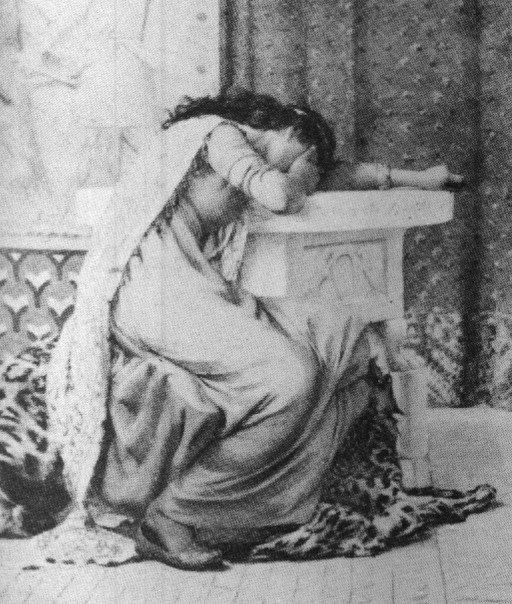Living For Applause
At Yale, I lived a lot on the surface of things. I suppose I had a good excuse. I was on the stage a lot. In one small production, I had the leading role. The producers advertised the play by plastering a dramatic black and white photo of me on posters everywhere. I couldn’t walk down a single street in central New Haven without seeing my image hanging from a lamppost.
No big surprise, then, that I poured most of my energy into appearances and what others thought of me. I sang in one of Yale’s a capella singing groups. The sad thing is that now, an alumnus far from jamborees and solos, I am a far better singer.
Why?
Living For Applause
At Yale, I lived a lot on the surface of things. I suppose I had a good excuse. I was on the stage a lot. In one small stage production, I had the leading role. The producers advertised the play by plastering a dramatic black and white photo of me on posters everywhere. I couldn’t walk down a single street in central New Haven without seeing my image hanging from a lamppost.
No big surprise, then, that I poured most of my energy into appearances and what others thought of me. I sang in one of Yale’s a capella singing groups. The sad thing is that now, an alumnus far from jamborees and solos, I am a far better singer.
Why? Nowadays I listen to the quality of sound coming out of my mouth, and I can do something about it. Back then, I was caught up in what the pitchpipe thought of me, or whether I could fill the role of our group’s funniest, most creative guy—you know, the one who gets the audience to nod and smile when he introduces a song.
It would have been nice to add here, “and then I became a Christian and everything got better.” I have to confess that I was a Christian. I was up to my ears in campus Christian groups, and those ears were always tingling to know my status. Did people perceive me as a spiritual leader, allied with the right faction of cool Christians?
If you are at all sensitive to campus life, you know the university always tempts you to live on the surface. If I or other Christians have disappointed you by so often failing to be different, you may find two of Scripture’s harder stories to be bracing refreshment.

If you are at all sensitive to campus life, you know the university always tempts you to live on the surface. If I or other Christians have disappointed you by so often failing to be different, you may find two of Scripture’s harder stories to be bracing refreshment.
Saul, son of Kish, was the tallest and probably handsomest man in Israel. No wonder the Lord singled him out to be Israel’s first king. He met all of the qualifications. Even before he completely established his throne, Saul proved himself a fighter and a leader. 1 Samuel 9 sums him up: “an impressive young man without equal among the Israelites—a head taller than any of the others.” (How much energy I spilled, bidding for that label, “impressive!”)
Now up until Saul’s reign, the Israelites had depended more on God than on government. Their leaders, people like Samuel and Deborah, had led and judged Israel as a service to God. No palace, no dynasty. No pomp, very little show.
When the Israelites tired of this and demanded a king, they were gripped by surface worries. They wanted to look good: “Now appoint a king to lead us, such as all the other nations have” (1 Samuel 8). In other words, we’ve looked around, seen what other people do, and we want to compete, or at least conform.
A curious incident marked Saul’s coronation. Samuel, entrusted to choose the new king, presented Saul at a vast citizens’ assembly. Samuel had previously spoken with Saul, formally anointed him with oil, and prophesied over him to confirm God’s leading. Saul had even received a spiritual touch from God to change his heart and prepare him for the daunting task ahead. Then…
“When Samuel brought all the tribes of Israel near, the tribe of Benjamin was chosen. Then he brought forward the tribe of Benjamin, clan by clan, and Matri’s clan was chosen. Finally Saul son of Kish was chosen. But when they looked for him, he was not to be found.
So they inquired further of the LORD, ‘Has the man come here yet?’
And the LORD said, ‘Yes, he has hidden himself among the baggage.’ They ran and brought him out, and as he stood among the people he was a head taller than any of the others.
Samuel said to all the people, ‘Do you see the man the LORD has chosen? There is no one like him among all the people.’
Then the people shouted, ‘Long live the king!’” (1 Samuel 10)
In other words, at the great moment of becoming king, Saul hid behind some luggage.
I hate to admit it, but I often found this behavior appealing, even cute. I would remember the feeling of being singled out for special praise. My heart would do a sort of leap as I looked out on the audience and thought, “Oh, no, really, not me!” Of course, I was also thrilled with recognition and hungry for more. Perhaps my impulse to hide my face came less from fear of the audience and more from fear of my own, bald appetite for more glory. It is terrifying when some public occasion brings that ravenous appetite into view.
But was Saul just being modest? No; we can rule that out right away. Saul had no problem with humility.
Later in his career, he flew into a rage when David killed Goliath and won the people’s applause. They sang, “Saul has killed his thousands, but David has killed his tens of thousands” and Saul seethed with jealousy. No small, yellow flicker of jealousy, either: Saul’s demand for greater recognition flamed up to consume his entire identity.
Saul tries to kill David

Humility says, “I know God, and I am at peace about what He has made me.”
Moses was not known as shy or retiring, but Scripture tells us he was the “most humble” man on the face of the earth (Numbers 12). Why? Because even when he presided over the birth of a nation, he recognized that everything he had came from God, and he made no boasts among his peers.
False humility says, “Oh, no, not precious little me! I have to hide.” “Precious little me” is the focus.
Reality to Saul was what he could see, hear, and manipulate. In a battle against the Philistines, Saul asks a priest to begin the ceremony to seek God’s aid. What may seem odd in the heat of battle was a tradition for Israel, a nation whose existence was based on God’s works. But while Saul was talking to the priest, the tumult in the Philistine camp increased more and more. So Saul said to the priest, “Withdraw your hand” (1 Samuel 14).
Why bother to seek the Lord when your own clever battle plan will do just as well?
Saul’s example should stir us. Like so many of us, Saul’s reality was the world of perceptions, and consequently, he became one of the Bible’s most spectacular failures. Selfish ambition twisted him against his closest followers, God’s commands, and even his own son, Jonathan. Determined to preserve his once-impressive image to the very last, Saul commits suicide in a losing battle, rather than let it be said that Philistines finished him off.
Can’t God’s people do any better? Indeed yes, and just as the Bible delivers an incisive indictment against the shallow life, it delivers the solution.
Some years before Saul’s rise and fall, a truly impressive character lived in the hill country of Ephraim. We don’t know if she looked impressive outwardly, as Saul did, and her career included no great political achievements. However, her very different spiritual decisions transformed the leadership of her nation.
She was Hannah, one of Elkanah’s two wives. Their marital situation was a tragic impasse. The other wife, Peninnah, had several children whereas Hannah was barren. So Peninnah taunted Hannah, and tormented her.

Hannah weeping
Although the Elkanah clearly loved Hannah, he had a poor grasp of her trouble. When she grieved and longed to be a mother, he could only say: “Hannah, why are you weeping? Why don’t you eat? Why are you downhearted? Don’t I mean more to you than ten sons?” (1 Samuel 1)
The family faithfully kept religious observances, including trips to the town of Shiloh for special worship. On one occasion, Hannah slipped into the “house of the Lord” there, and poured out her soul in silent prayer. She was so intent that her lips moved with her words, and the elderly priest, Eli, misread what he saw:
“How long will you keep on getting drunk? Get rid of your wine.”
“Not so, my lord,” Hannah replied, “I am a woman who is deeply troubled. I have not been drinking wine or beer; I was pouring out my soul to the LORD. Do not take your servant for a wicked woman; I have been praying here out of my great anguish and grief.”
Eli answered, “Go in peace, and may the God of Israel grant you what you have asked of him” (1 Samuel 1).
Hannah did not just ask for something. She also made God a promise that if God granted her a son, she would dedicate him to serve God in God’s “house” at Shiloh. We have prayers of dedication at churches today, but the parents always bundle up their dedicated babies and happily take them home.
Hannah’s promise was different. When God answered her prayer with a baby boy not long after, Hannah raised him carefully for three years, and then took him to Eli to be brought up in Shiloh. Samuel no longer lived in his parent’s house, but grew up and served in God’s.
Hannah’s little boy became Samuel, the prophet and judge.
So what went through Hannah’s mind as she entrusted her son to the priest, Eli? How did she know Samuel would be all right? Didn’t she want more tangible control over her son’s upbringing? (I’m a parent now, with a three-year-old child, like Samuel… it makes you think.)
Let’s compare Hannah to Saul for a moment. What moved Saul’s heart to joy? Among other things, he was excited by revenge on his enemies, and fame in song. What moved Hannah? The Bible describes at least two times when she was refreshed or even delighted in spirit.
The first moment came after she had prayed to the Lord in Shiloh. She had received no vision or prophetic word, no tangible evidence that a boy would be on his way. But she answered Eli’s blessing:
“She said, ‘May your servant find favor in your eyes.’ Then she went her way and ate something, and her face was no longer downcast” (1 Samuel 1). How could she rejoice when she walked away from prayer at Shiloh with nothing in her hands?
Hannah offers Samuel

The second moment was stranger still. After she left her Samuel in Shiloh with Eli, she praised God in a spectacular song. Hannah didn’t know how Samuel would turn out or that she would soon have other children. Could you rejoice with her when she left Shiloh without her little boy?
Saul could not have. Saul needed to see something and hold it to know that it was valuable. Hannah had a firm grasp on something: her faith laid hold on God. Here are some notes from Hannah’s triumph song—the song she sang after she had seemingly lost her son.
“My heart rejoices in the LORD; in the LORD my horn is lifted high. My mouth boasts over my enemies, for I delight in your deliverance.”
“Do not keep talking so proudly or let your mouth speak such arrogance, for the LORD is a God who knows, and by him deeds are weighed” (1 Samuel 2).
For years, no one could see Hannah’s success, though Saul’s value as a king seemed immediately apparent. Hannah knew her success was safest when it was given to God, and to all appearances was no longer hers at all. The Lord, not Hannah, would receive the credit. But man’s estimation did not matter to her anyway: the Lord knows, and His weights are the weights that truly count.
If you are not a Christian, I hope these Old Testament stories trouble you a little. At least part of their unsettling nature lies in the familiarity of Saul, and the alien nature of people like Hannah. Her kind of strangeness is all over the Bible, right up to the unearthly claims of Jesus Christ about Himself.
Here was a man who literally called it his “purpose” to endure shame, torture and death—with no immediate rewards. He rose from the dead, but not to preside over a festival of resurrection appearances and worldwide miracles: He presided instead over the spiritual rebirth of his followers, who then set about slowly turning the world upside-down.
Christian, weigh yourself. What do you really value? Have you taken God’s values to be fame in Christian work, numbers in your program, or tangible influence? What value have you set on unseen things?
See how Saul weighed things. Should I obey God? Well, sure–unless it means waiting and waiting with no answer. Then waiting for Him is pointless, and I can take things into my own hands.
Now watch Hannah. Now the mother of a healthy boy, she feels secure each time her rival Peninnah glimpses her holding that little boy’s hand. No more taunts now, with such a fine son by her side! But she weighs their earthly prospects against her unseen spiritual business, her promise, and the potential of a life hidden in God. Hannah had no way of knowing what would become of Samuel. She only knew that God always knows, and His unseen treasures are priceless. She chose Him.
Let’s be done with worldly values. Let’s be willing to stake everything on that unseen reality.
Paul Till, Silliman ‘86
